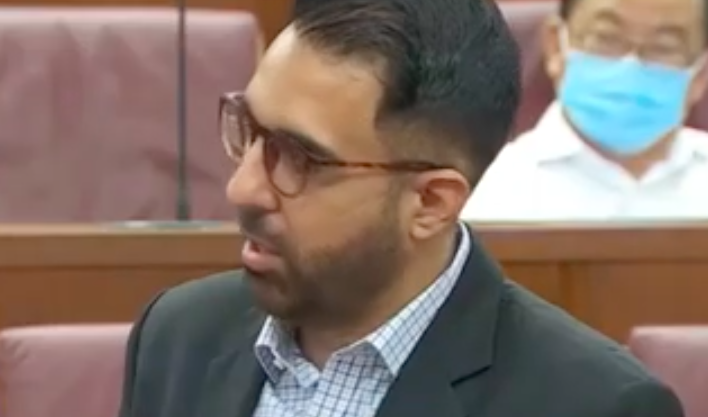Workers’ Party chief and Leader of the Opposition Pritam Singh made the case in Parliament on Tuesday for lowering the eligibility age for singles wanting to buy HDB flats.
Currently, only singles who are at least 35 may buy HDB flats. They can buy only resale HDB flats, or apply for two-room Build-to-Order (BTO) Flexi flats.
Mr Singh said that lowering the eligibility age to 28 would open up more opportunities for young people’s futures.
Citing the most recent Census taken by the government, he said that there are now more singles than before, across different age groups.
He said: “There is a prevailing orthodoxy that Singaporeans should be married by 35, and that offering flats to those of a younger age could somehow discourage marriage.
“Alternately, there may be an assumption that offering flats to those younger than 35 would jeopardise the value of filial piety.”
He cited a 2021 National Youth Council publication on The State of Youth in Singapore in which the young respondents said that maintaining strong family relationships and having their own residence was either “somewhat” or “very important”.
He questioned the assumption that offering younger citizens the chance to own and live in their own flats would discourage them from getting married. It is possible that some who do want to marry may not want to do so early, as they may want to have financial security before getting married and having children.
If younger singles “are allowed to purchase HDB property, whether BTO or resale, this may well open new prospects to concomitantly move on to marriage and parenthood”, he said.
He argued that the prospect of purchasing a flat at age 28 instead of 35 “would leave more scope for the growth of one’s CPF balances for peace of mind for retirement adequacy”.
Senior Minister of State (National Development) Sim Ann responded. .
She said that over the years, housing options and grants have been expanding and that even though the policy has generallly been in support of families, the government is also aware of the aspirations of singles to own their own homes “particularly the circumstances of singles, who are also caregivers and seniors”.
Ms Sim pointed out the realities of the country’s limited living space, and added that allowing younger singles to buy HDB flats would cause demand to rise. “By lowering the age limit, demand will go up. And we will need to make sure we have the land and the resources to meet such demand,” she said.
National Development Minister Desmond Lee also responded to Mr Singh, saying ”we want to be responsive to the evolving aspirations of our Singaporeans”.
In a follow-up question, Mr Singh asked if data from the new Census would bring about a policy change concerning building more flats for younger singles.
To this, Mr Lee replied that trends in Singapore’s demographics are “not news to us.”
He said: “We’ve been looking at social-demographic trends all the while and therefore the moves on singles through the years, both in allowing them to apply for BTO flats but also adjusting the grants’ eligibility along the way. So we will continue to look at our HDB eligibility criteria and make adjustments where we can.”
But like Ms Sim, he underlined limitations concerning land and resources.
“If neither land nor resources were constrained, we want to meet everyone’s needs all the time. But we’ll have to make priorities for different groups based on income, based on nationality, based on [the] number of chances they’ve got at owning a home, based on their family obligations, and then make some adjustments, helping those who may need more help and giving them more support.
“So I think that’s where we are, and we continue to look at the needs of Singaporeans and the housing options that they have.”
/TISG

